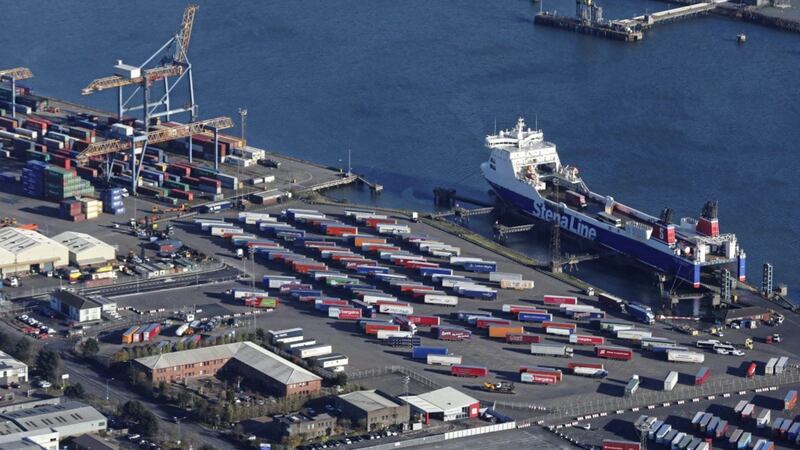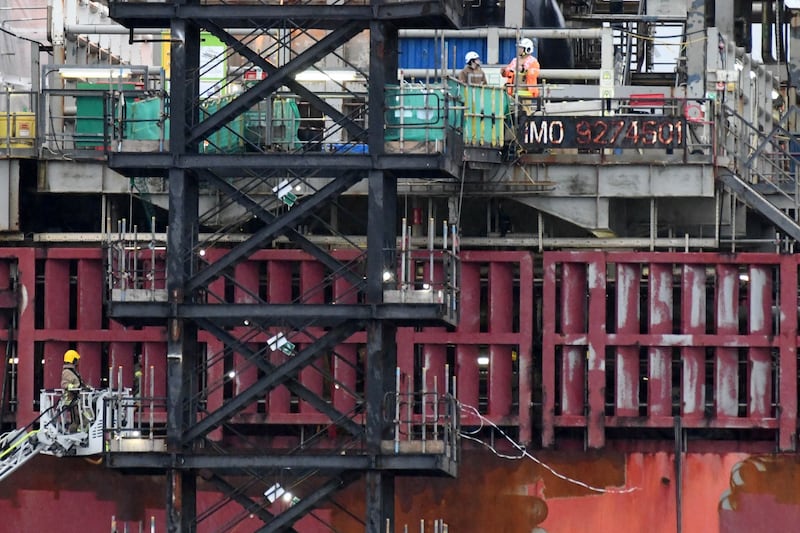A RECORD 24 million tonnes of cargo passed through Belfast Harbour in 2018, in what has been described as a "strong year of growth".
The latest trading figures show that cargo volumes at the port rose to 24.6m tonnes last year, an increase of over 900,000 tonnes (3.8 per cent) on the 2017 total.
The growth was driven by a 3 per cent uplift in freight travel on Stena Line’s services to Britain, with a record 532,000 freight vehicles passing through the port, while the harbour welcomed more than 1.5 million passengers for a second consecutive year.
The Stena Line trading performance was augmented by the addition of a larger third vessel to the popular Belfast to Liverpool route and market gains on the Belfast to Cairnryan service.
Imports and export of industrial coal by Cookstown-based LCC Group grew by over a third (37 per cent) at the port to over one million tonnes as the company scaled up production at its processing plant.
Meanwhile the animal grains and feeds sector posted record trading levels at Belfast Harbour, rising by 7.5 per cent to 2.35m tonnes.
In relation to tourism the port also continues to go from strength to strength, with 185,000 visitors on 115 cruise ships welcomed to the city in 2018. That number is set to rise to 285,000 this year, with a record 151 ships set to dock in Belfast for the tourist season.
Belfast Habour CEO, Joe O'Neill outlined his delight at the latest trading figures.
“2018 was a strong year of growth, with virtually every trade sector reporting an increase in traffic and with many reaching record levels," he said.
“Growth has been supported by Belfast Harbour’s long-term investment programme to improve its competitiveness and efficiency."
"We will continue to work with our partners to utilise new technology to make Belfast both the greenest and most digitally enhanced regional port in the world," he added.
Michael Robinson, Belfast Harbour’s commercial director described the trade performance as "very positive", but stressed the need for continued investment.
"We have some challenges ahead not least following the completion of Orsted’s portfolio of Irish Sea windfarm projects, which has been a source of very significant tonnage and revenue for the port in recent years. However, we were pleased to note the Crown Estate announcement in late 2018 of a new round of seabed leasing which could see the return of this trade in the early 2020s."
“We also recognise the long term expected declines ahead in some of our more traditional trade sectors particularly in the importation of fossil fuels as the economy transitions to renewable energy sources and the general consumer trend away from consumption in favour of experience purchases. Accordingly we are making investments in facilities for our longer term sustainable trade sectors and repositioning our business to avail of the opportunities in the changing economy," Mr Robinson added.
During 2018 Belfast Harbour began a £40m investment programme, which includes the upgrading of its container terminal. In December the business also purchased the world's largest hydraulic crane in a £3m investment to enhance its cargo handling capacity.








